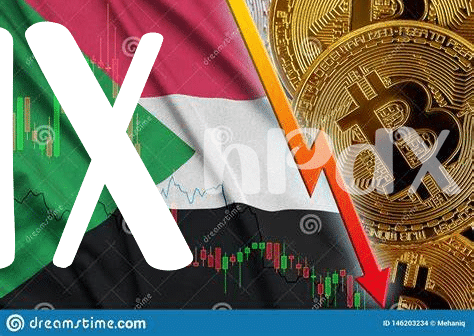Understanding the Basics of Bitcoin 💡

Bitcoin operates using a technology known as blockchain, which is like a digital ledger keeping track of all transactions. Think of it as a decentralized system, meaning no central authority controls it, unlike traditional currencies controlled by governments or banks. With Bitcoin, you can send money anywhere in the world quickly and securely without needing a middleman like a bank. Transactions are pseudonymous, meaning your identity isn’t directly tied to your Bitcoin address, providing a level of privacy. However, it’s essential to note that Bitcoin’s value can be volatile, so its price can fluctuate significantly in a short period. Overall, understanding the basics of Bitcoin is crucial for anyone looking to explore using this digital currency.
Navigating Sudan’s Exchange Control Regulations 🔒
Navigating through Sudan’s financial landscape, individuals face stringent exchange control regulations that shape the use of traditional currencies within the country’s borders. These regulations dictate how Sudanese citizens and businesses can engage in foreign exchange transactions, limiting the flow of funds across international borders. In this complex regulatory environment, the concept of using Bitcoin as an alternative decentralized currency presents both opportunities and challenges for those seeking financial freedom and flexibility in a restricted economy.
As individuals seek innovative ways to maneuver within Sudan’s exchange control framework, the allure of Bitcoin lies in its borderless and censorship-resistant nature. The potential for seamless peer-to-peer transactions and global accessibility through digital wallets opens new avenues for financial inclusion in regions where traditional banking systems may fall short. However, the volatile nature of cryptocurrency markets coupled with regulatory uncertainties underscore the importance of understanding the legal implications and risks associated with utilizing Bitcoin under Sudan’s exchange control regime.
Benefits of Using Bitcoin in Restricted Economies 💰

Bitcoin’s decentralized nature offers individuals in restricted economies a unique financial freedom. By bypassing traditional banking systems, users can transact with greater privacy and autonomy. Additionally, the lower fees associated with Bitcoin transactions compared to traditional banking services can be particularly advantageous in economies with strict exchange controls. Furthermore, the ability to send and receive funds across borders quickly and securely allows for improved access to global markets and financial opportunities. In essence, Bitcoin provides a valuable alternative for individuals navigating the challenges of restricted economies, offering a pathway to financial inclusion and empowerment.
Risks and Challenges of Bitcoin Transactions 🚨

Bitcoin transactions come with their share of challenges and risks, adding a layer of complexity to the digital currency landscape. Issues such as fluctuating prices, security concerns, and potential for fraud can make navigating the world of Bitcoin daunting for new users. Moreover, the decentralized nature of Bitcoin means there’s no central authority to turn to in case of disputes or unauthorized transactions. Despite these hurdles, many find the transparency and control offered by Bitcoin transactions appealing. To mitigate risks, users often turn to reputable exchanges and secure storage solutions. Staying informed about the latest trends and regulations is crucial for safe and efficient Bitcoin transactions. For more insights on how foreign exchange controls can impact Bitcoin use, check the article on foreign exchange controls affecting bitcoin in Spain.
Legal Implications for Bitcoin Users in Sudan ⚖️
Bitcoin users in Sudan face a complex landscape of regulations and legal considerations. The decentralized nature of Bitcoin challenges traditional financial systems, leading to uncertainties in how laws apply to its use. Sudan’s specific restrictions on currency exchanges further complicate matters for Bitcoin users, raising questions about the legality of transactions and potential consequences. Navigating these legal implications requires a thorough understanding of both local laws and the evolving global regulatory environment surrounding cryptocurrencies. Compliance with anti-money laundering and counter-terrorism financing measures is crucial to avoid legal issues, while also highlighting the need for regulatory clarity to support the growth of Bitcoin usage in Sudan. As users navigate these challenges, seeking legal counsel and staying informed about regulatory updates are essential steps to safely engage in Bitcoin transactions within the confines of Sudan’s legal framework.
Future Outlook: Potential Changes in Regulations 🌐

Bitcoin users in Sudan are closely watching for potential changes in regulations surrounding the use of cryptocurrency. The evolving landscape of financial policies in the country may impact how individuals can interact with Bitcoin and other digital currencies. As authorities continue to navigate the intersection of technology and finance, the future regulatory environment remains uncertain. This uncertainty presents both challenges and opportunities for those involved in the crypto space, prompting discussions on how to adapt to any forthcoming changes. Keeping a keen eye on updates from regulatory bodies will be crucial for anyone interested in utilizing Bitcoin within Sudan’s financial framework. For more information on foreign exchange controls affecting Bitcoin in the Solomon Islands, click here: .
